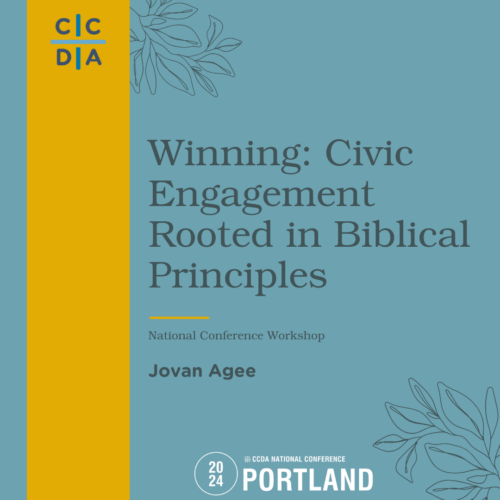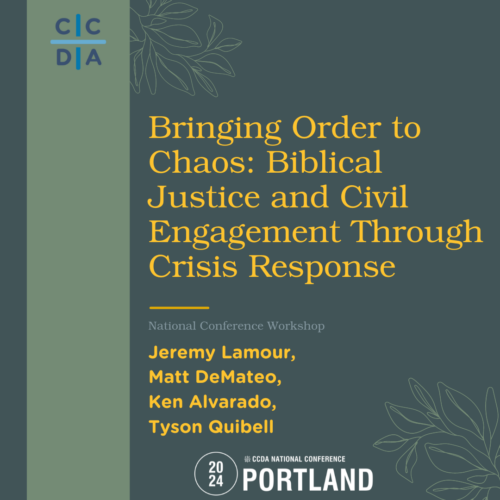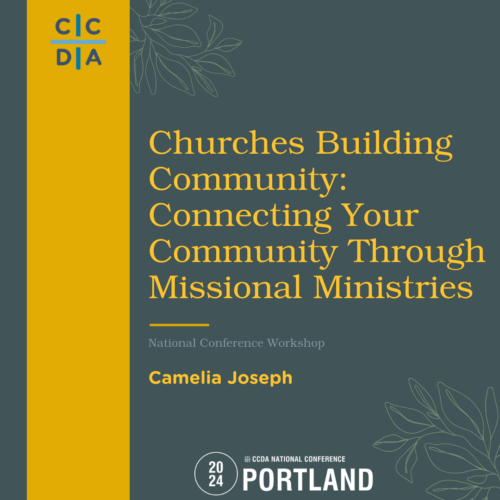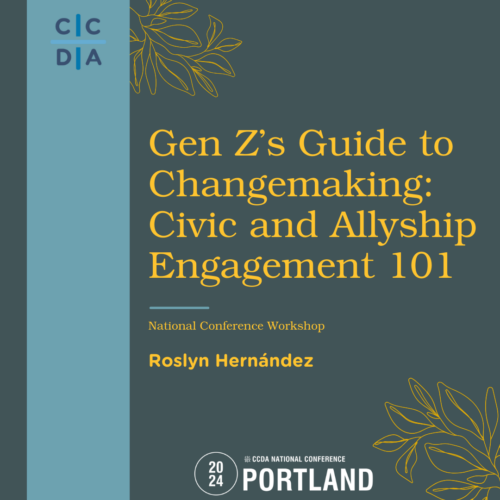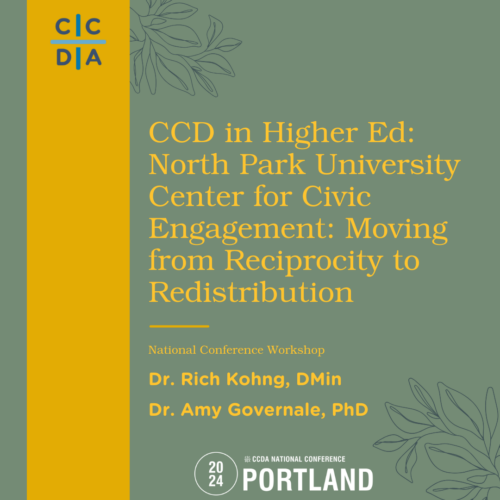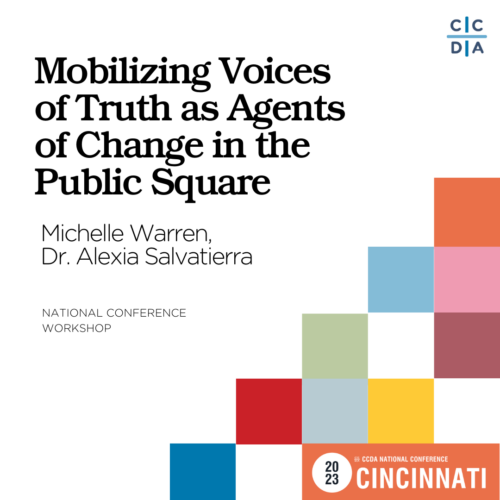CCDA has a long-standing commitment to the confrontation of injustice and is actively working to create opportunities to practice civic engagement and mobilize our communities so their voices can be heard.
Why should we civically engage?
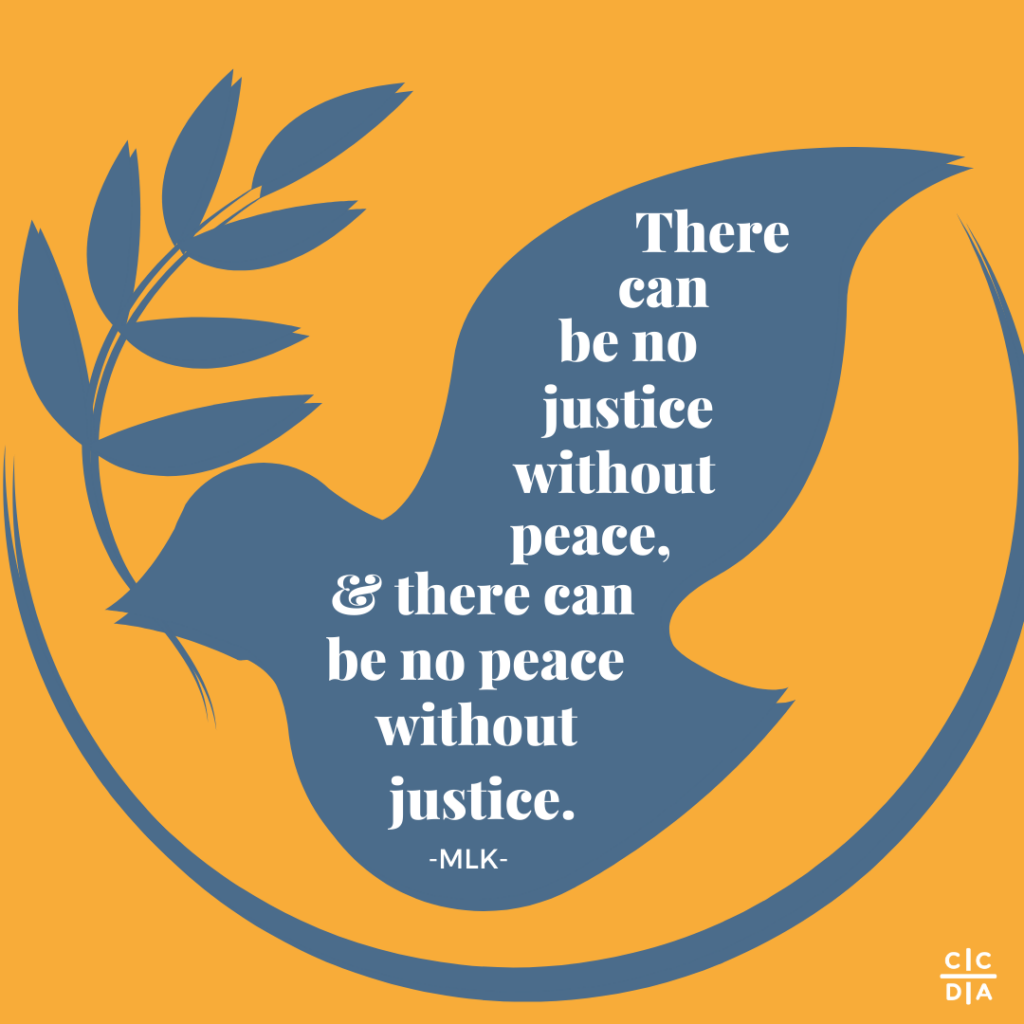
Although government policies and funding decisions affect us all, we know that many voices remain unheard or marginalized in the public square. As advocates for the poor and marginalized, we are committed to doing our best to bring what we know to these critical spaces. We do this because we know that advocacy works. Sharing your community’s story can change attitudes, opinions, behaviors, and even policy and funding decisions. That is why we speak up and out about what we and our communities are experiencing. We have and will continue to mobilize & organize to see justice come to our neighborhoods. During August Recess, we recommit to and act out our desire to living the mantra, ‘without justice, there is no peace.’ We know this is how we will create justice and peace for all.
Will you join your CCDA family and commit to telling our representatives the stories of our communities?
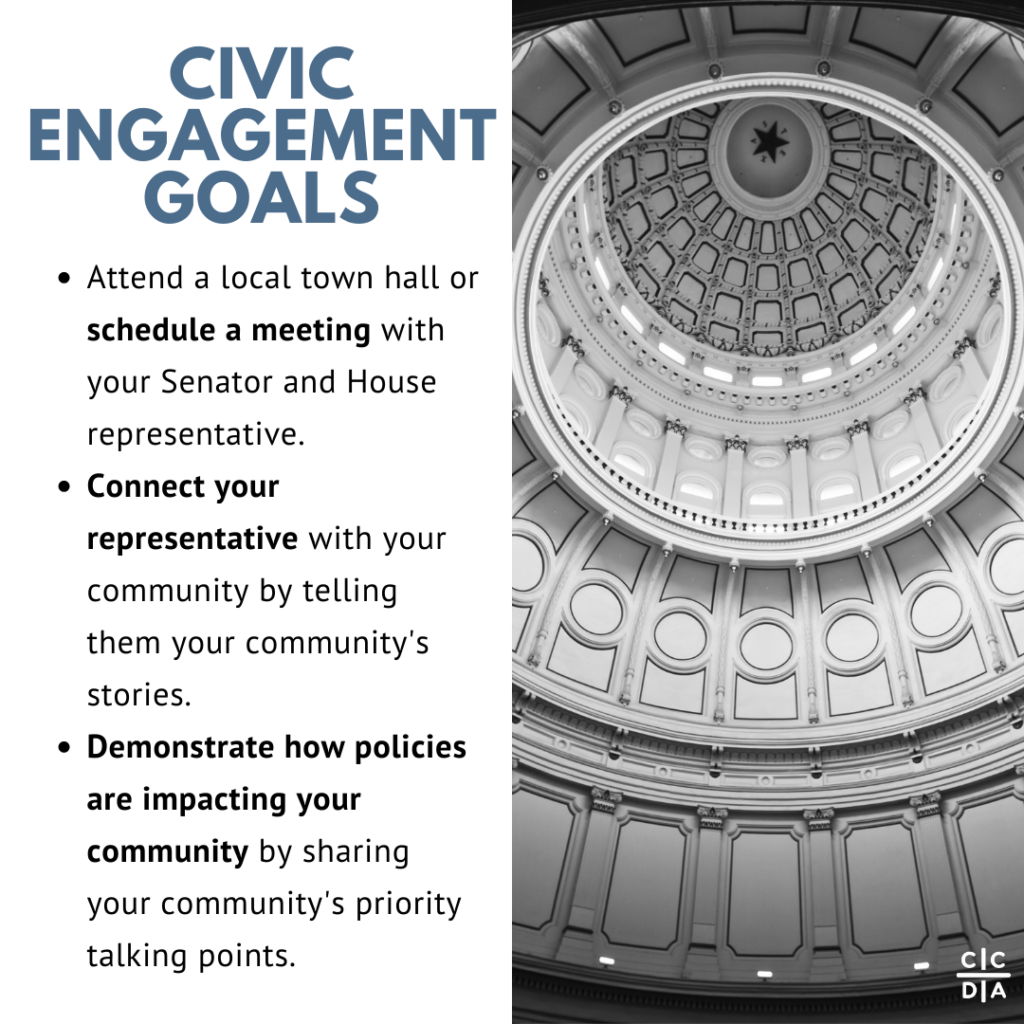
Our goals are:
- Attend a local town hall or schedule a meeting with your Senator and House representative.
- Connect your representative with your community by telling them your community’s stories.
- Demonstrate how policies are impacting your community by sharing your community’s priority talking points.
In this toolkit, you will find:
Tools to Get Started
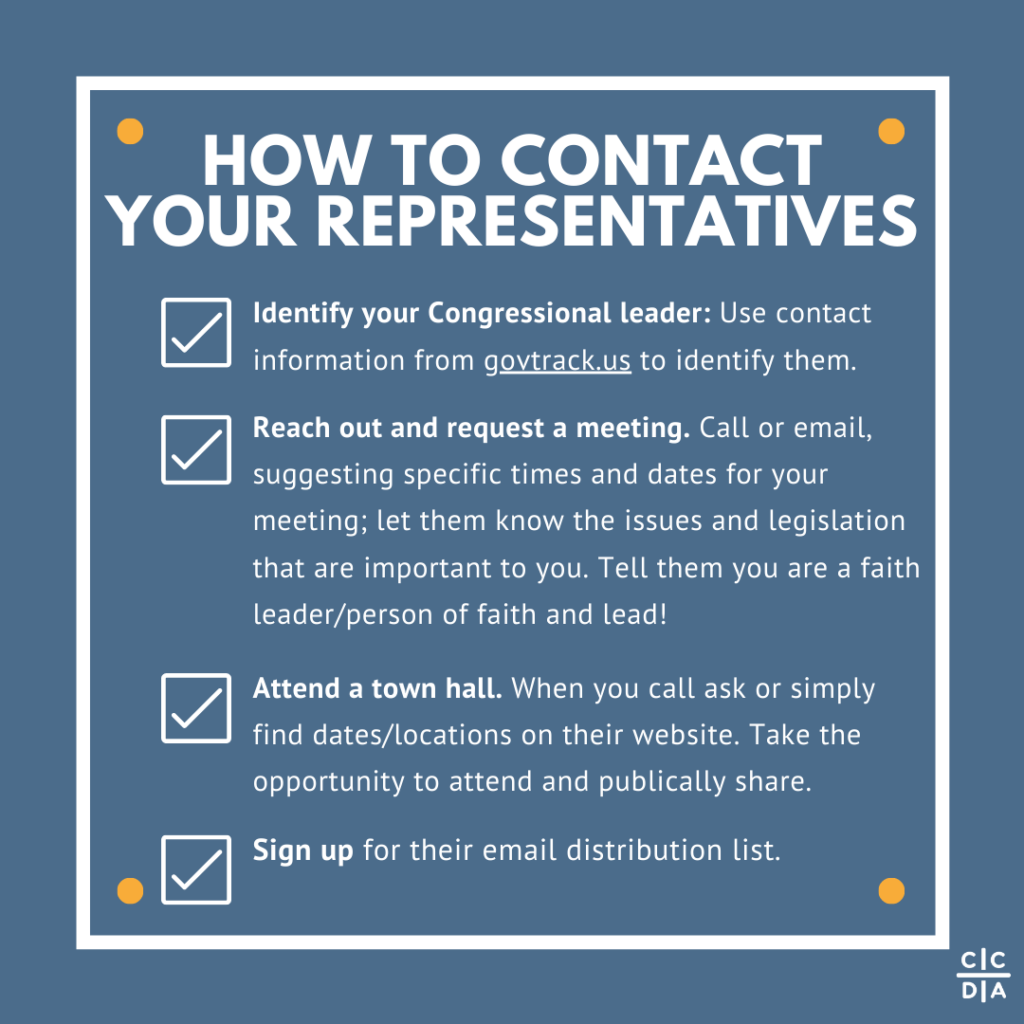
Contact your Representative
- Identify your Congressional leader
- Call your Representative today
- Get a meeting with your representative (In Person / Virtual)
- Virtual Meeting Template
- Engage your representative on social media
- Find a town hall to attend in your area
Follow up
- Follow up email template to send after your legislative meeting
- Leave behind materials for your meeting
- Invite your representative to do an organization visit and have them meet your community. Sample itinerary here.
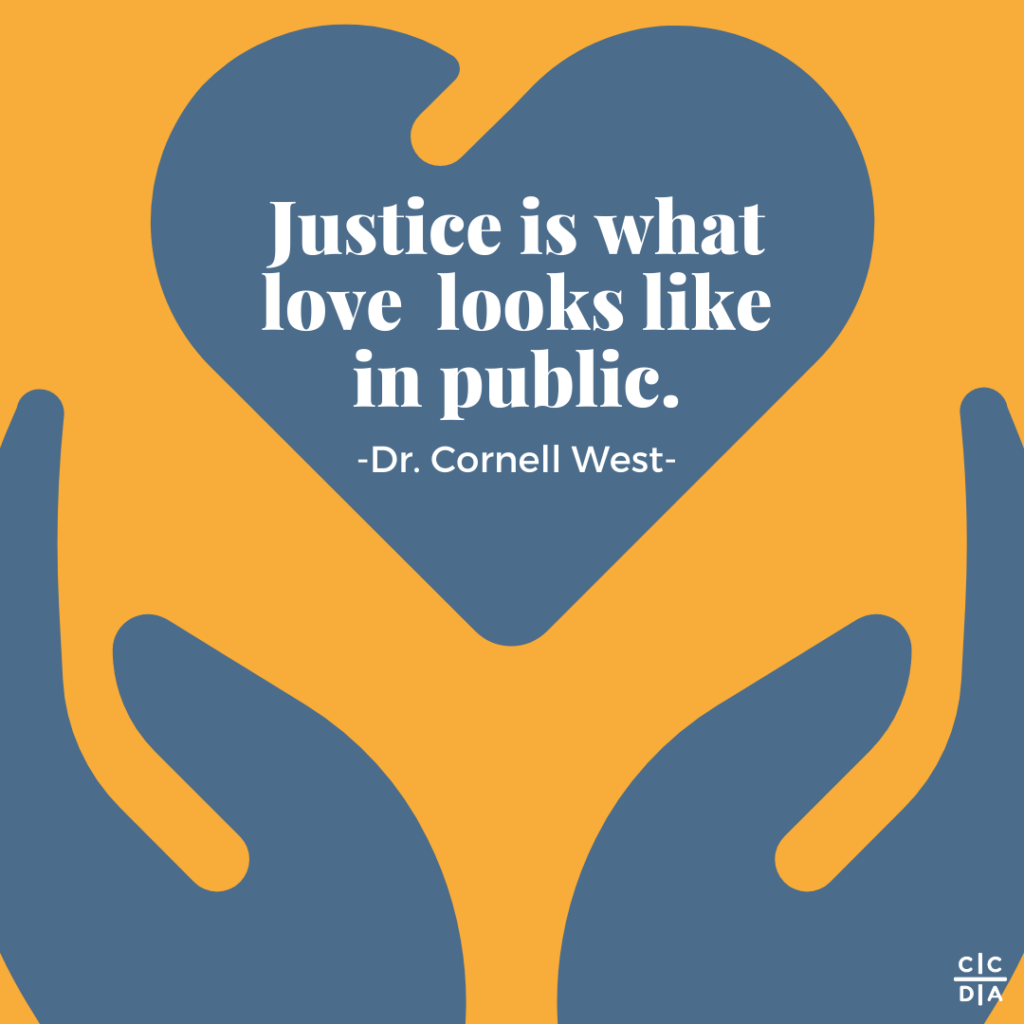
Spiritual Preparation
- Devotionals from CCDA practitioners
- Dr. Barbara Williams Skinner’s Masterclass on Voting Rights & Representation
- Workshop: Civic Engagement – CCDA Style
- Catalyzing the Moment: Civic Engagement
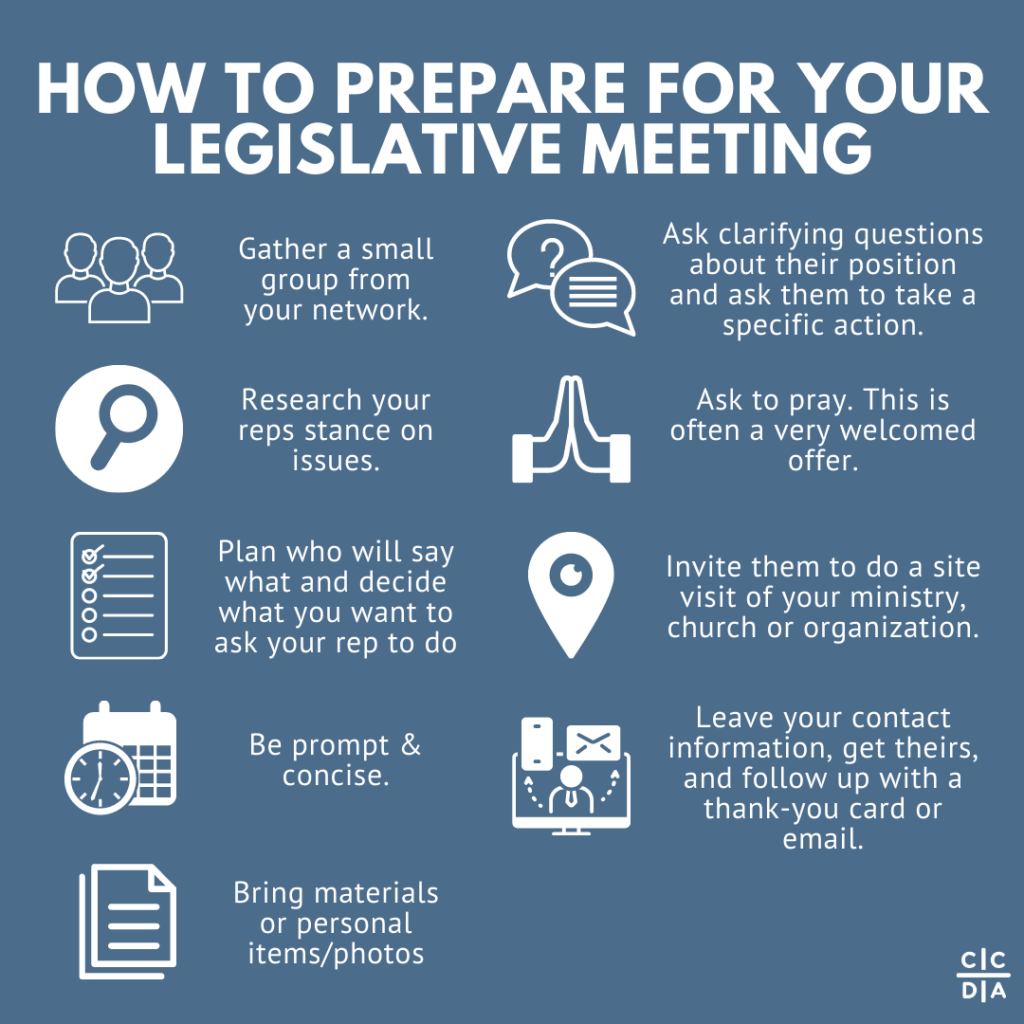
Issues Members are Lifting Up this Year
We have incredible and dedicated practitioners within our association who carefully curated the following sources of information. It’s important to note that these sources were not created solely to reflect the views of CCDA overall, but rather to offer a diverse range of perspectives from within our association. Should you require further clarity on any of the issues, we encourage you to reach out to Christina at christina@ccda.org, who will be more than happy to assist you!
Alternative Crisis Response
Behavioral and mental health issues are especially prevalent in marginalized communities—often compounded by poverty, racialized trauma, and a lack of access to quality care. Unfortunately, in many cities and counties, the primary response to a behavioral health crisis is still law enforcement. This leads to unnecessary arrests, escalated harm, and in far too many cases, fatal encounters.
Alternative crisis response models provide a proven path forward. These approaches rely on trained mental health professionals and peer responders instead of police, prioritize de-escalation and care, and connect people to long-term support systems rather than jails.
Organizations like Knoxville Heart, Vera Institute, and research from Stanford highlight the benefits of alternative responses to behavioral health crises.
But even the best crisis response programs can’t operate in a vacuum. We must also address the upstream causes of community instability and violence, including lack of access to housing, food, education, and healthcare. Generational poverty and systemic disinvestment are themselves forms of violence—and our advocacy must reflect that.
Research highlights: Recent studies and reports support what practitioners have long observed: violence and behavioral crises are deeply connected to structural inequities—and community-based, trauma-informed solutions are more effective than punitive responses.
- Structural Racism and Mass Shootings – A public health perspective (NIH)
- The Healing Power of Play – Why play matters for trauma survivors
- A Trauma-Informed Approach to Violence Prevention (NIH)
- What Really Lowers Crime – Nevada Sentencing Commission Report
- Social Conditions and Firearm Violence (NIH)
Take action today by reaching out to your representative and promoting increased mental health resources, harm prevention practices, and reduced police engagement in crises.
The People’s Response Act:
The People’s Response Act was introduced in 2023 to provide federal support for community-based safety strategies—but it did not move forward in Congress. While the bill hasn’t yet been reintroduced in 2025, the ideas it championed are still critically relevant.
Check out the 2023 bill here: H.R.4699 – The People’s Response Act
With or even without a current bill number, your voice helps lay the groundwork for future legislation or federal funding priorities.
Click here to tell your legislator about how the following policies affect your community:
2023 bill: H.R.4699 – The People’s Response Act
Black Maternal Health
The United States has the highest maternal mortality rate of any high-income country and significant disparities in outcomes – and the crisis is only worsening: the maternal mortality rate in 2021 was 89 percent higher than the rate in 2018.
Black maternal mortality and morbidity remain urgent—and preventable—health crises. Black women die at 2–3× the rate of white women in the U.S., with many deaths linked to systemic barriers like lack of access to prenatal care, racial bias in healthcare settings, and social determinants of health like housing and nutrition.
The Black Maternal Health Momnibus Act addresses this crisis through historic investments that comprehensively address every driver of maternal mortality, morbidity, and disparities in the United States (1).
Though not yet enacted, the Act continues to garner strong support, including advocacy efforts in mid‑2025 from organizations such as National Council of Jewish Women and March of Dimes. Congress has also designated mid‑April 2025 as Black Maternal Health Week (H.Res. 332), demonstrating both momentum and attention to this crisis.
Tell your legislator about how the following policies affect your community:
Advocating for Criminal Record Clearance and Opportunity
The Clean Slate Initiative is a bipartisan effort that passes and implements laws that automatically clear eligible records for people who have completed their sentence and remained crime-free, and expands who is eligible for clearance. 1 in 3 adults has a criminal record; Clean Slate laws reduce barriers to jobs, education, and housing.
Check out the federal bills and share with your legislator how the following policies affect your community:
- On April 30, 2025, Representatives Lucy McBath (D‑GA) and Nathaniel Moran (R‑TX) introduced the Clean Slate Act of 2025 (H.R. 3114) in the House. Senators Lisa Blunt Rochester (D‑DE) and Rand Paul (R‑KY) are leading the Senate version (S.1580).
- Both of the above bills have been referred to the Judiciary Committees. Check through these links if your representatives are on that committee:
- Simultaneously, Representatives Laurel Lee (R‑FL) and Sydney Kamlager‑Dove (D‑CA) reintroduced the Fresh Start Act (H.R. 3111), which would provide federal grant funding to help states automate clean slate implementation.
Clean Air Standards
Creation care is people care. Pollution of air, water, and soil disproportionately harms low-income and racially marginalized communities, compounding systemic injustice. EPA clean air standards have long served as essential protections for public health but are now under threat. Christian theology affirms this call to steward creation—from Genesis 2:15 (“to work and keep it”), through Psalms 8 and 104 (celebrating creation’s goodness), to Colossians 1:15–20 and Romans 8 (Christ reconciling all creation). During August recess, CCDA members have a vital opportunity to advocate against the rollback of environmental safeguards and the expiration of clean energy tax credits. Your voice can influence upcoming decisions about appropriations, regulatory reforms, and the restoration of equitable, life‑sustaining environmental policy.
Check out the Evangelical Environmental Network for more info and to find support for how to talk to your representative about this issue.
Comprehensive Immigration Reform
Our national immigration laws have created a moral, economic, and political crisis in America. Initiatives to address this crisis have often been reduced to false choices—such as “open borders” versus “mass deportations”—leading to polarization, misinformation, and political stalemate. This deadlock has carried a tragic human cost. As people of faith, we are called to advocate for reforms that respect the God-given dignity of every immigrant and reflect biblical principles of justice, compassion, and hospitality (EIT/World Relief).
Both The Dignity Act of 2025 (H.R. 4393) and American Dream and Promise Act (H.R. 1589) are bipartisan and propose systemic, humane reforms that resonate with constituents across faith, community, and social justice networks.
1. The Dignity Act of 2025
While the Dignity Act has garnered bipartisan support for its attempt to provide long-term solutions, it has also drawn significant criticism from organizations representing directly impacted communities.
Supportive perspectives (e.g., World Relief):
- Praises the bill as a good-faith bipartisan alternative to dehumanizing, family-separating detention and deportation policies.
- Sees it as an important step toward stability for millions of immigrants while balancing security and compassion.
- Emphasizes the potential to break through years of gridlock with a workable compromise.
Read World Relief’s statement
Critical perspectives (e.g., United We Dream,):
- Argues the bill offers protections for a few in exchange for creating a permanent second-class of immigrant workers without full rights and protections.
- Warns that it increases criminalization, exclusion, and endangerment for many immigrants.
- Calls for more inclusive, permanent solutions without harmful trade-offs.
Read the opposition letter summary
2. American Dream and Promise Act 2025
Dreamers are critical to the life of countless communities throughout the USA. This act focuses on providing protections and pathways for Dreamers, who are vital members of communities nationwide. It has garnered over 200 co-sponsors and been referred to the House Judiciary and Education and Workforce Committees. It aims to provide a durable, humane immigration framework for Dreamers, TPS (Temporary Protected Status), and DED (Deferred Enforced Departure) recipients.
- In the House, it is co-sponsored by Reps Sylvia Garcia (D-TX) and Maria Elvira Salazar (R-FL)
- On the Senate side, co-sponsors include Senators Lisa Blunt Rochester (D-DE) and Rand Paul (R-KY)
Act now by identifying your congressional leader and telling your legislator about how the these policies affect your community.
Protecting Sacred Space for Immigrant Communities
In Mennonite Church USA et. al. v. United States Department of Homeland Security, a coalition of Christian faith groups—including CBF churches—has come together to seek a permanent injunction against immigration enforcement in houses of worship and during ministry activities.
They argue:
“Every human being, regardless of birthplace, is a child of God worthy of dignity, care, and love. Welcoming the stranger…is a central precept of their faith practices.” (Case No. 1:25-cv-00403, p. 5)
“An immigration enforcement action during worship services, ministry work, or other congregational activities would be devastating…It would shatter the consecrated space of sanctuary, thwart communal worship, and undermine the social service outreach that is central to religious expression.” (p. 8)
This case is about preserving the right to worship freely and protecting immigrant communities from fear and harm inside sacred spaces.
Share the lawsuit summary and your own story if your congregation provides sanctuary, accompaniment, or spiritual care to immigrant neighbors.
How You Can Take Action During August Recess: Contact your representative to express support for religious protections in ministry to immigrants.
Education Equity
Counseling Not Criminalization in Schools Act
This bill aims to prevent federal funds from supporting the presence of police officers in elementary and secondary schools. Evidence suggests that police in schools do not necessarily enhance student safety. This bill directs funds toward mental health and trauma-informed services. Rather than punishing kids in schools for behavior, this bill provides ways of healing the underlying cause of that behavior. For more information, visit Police Free Schools.
Tell your legislator about how the following policies affect your community: H.R.2739 – Counseling Not Criminalization in Schools Act
Mass Incarceration
The death penalty raises significant concerns. It is often racially biased, costly, and ineffective in deterring crime. It also involves severe methods and fails to provide healing for the families of murder victims. Even with improvements, the risk of wrongful execution remains significant, as evidenced by the exoneration of over 200 individuals from death row. Pursuing solutions that foster healing and peace aligns with the values of many Christians and promotes restorative justice over execution.
Unfortunately, the bill featured in last year’s toolkit (H.R.1124 – Federal Death Penalty Abolition Act of 2023-2024) has stalled in committee and has not yet been reintroduced in the current Congress. In contrast, several legislative efforts have emerged in 2025 that seek to expand the use of the federal death penalty. Even when legislation is stalled or regressive policies gain traction, CCDA practitioners can continue to take meaningful action—through prayer, partnership, and faithful public witness. The organizations listed below are actively working to uphold human dignity, abolish the death penalty, and promote restoration for those most harmed by mass incarceration and systemic injustice.
Interfaith Action for Human Rights
Southern Center for Human Rights
Take action today and tell your legislator about how this policy affects your community.
Stop Gun Violence
Gun violence prevention
Experts have recommended a number of policy approaches to reduce gun violence:
Congress can close legal loopholes that allow people to buy guns without background checks from private sellers, websites, or gun shows. A move that over 80% of gun owners support.
Congress can institute universal background checks for both gun and ammo purchasers and require gun licenses, all measures supported by the vast majority of Americans.
Congress can adequately fund community-based interventions such as the nearly 20-year-old Ceasefire program, an underfunded effort that has helped to reduce gun violence in cities through education and public health crisis strategies.
Congress can reinstate the assault weapons ban that expired in 2004, or pass new legislation banning the purchase of high-capacity magazines and military-style assault weapons.
Tell your legislator about how the following policies affect your community:
- 2023 Declaring gun violence a public health crisis (H.Res.348)
Break the Cycle of Violence Act
Congress has the opportunity to pass legislation that directs vital funds to communities impacted by violence to help them implement evidence-based programs that stop violence, heal trauma, and prevent harm.
2025 Break the Cycle of Violence Act (Senate S. 2203 and House H.R. 4103)
The Department of Justice recently made the decision to terminate awards for community-based violence intervention (CVI) programs. Contact your senators and respectfully urge them to contact the Department of Justice and advocate for the immediate reinstatement of this funding.
Follow these links to tell your legislator about how these policies affect your community:
Reclaiming Jubilee: A Vision for Economic Justice Through Federal Estate Tax Reform
Economic inequality in the U.S. is both generational and racialized—and our tax code reinforces it. One bold policy idea gaining traction among justice-minded Christians is Federal Estate Tax Reform rooted in biblical principles like the Year of Jubilee, Jesus’ critique of wealth, and Paul’s call for resource equity.
This vision proposes redirecting excessive generational wealth transfers (estates over $1 million) toward charitable organizations working to break cycles of poverty through asset-based community development—such as affordable housing, education access, job training, and financial literacy.
By codifying stricter limits on inheritances and stronger incentives for justice-centered giving, this proposal would increase both equity and opportunity in communities long excluded from wealth accumulation due to redlining, exploitation, and systemic injustice.
Next Steps:
- Begin conversations with your networks, churches, and coalitions about this proposal.
- Explore whether your organization could be considered a “qualified charitable organization” under these criteria.
- Lift up the theological call to reimagine inheritance, ownership, and neighbor-love in both discipleship and advocacy.
More Ways to Engage
Thanks for taking a faithful step in sharing your community’s story with our legislators. We pray that through your advocacy, your neighbors are able to experience community flourish as God intended. Please share your stories of engaging in the public square with us by emailing info@ccda.org.



